第42章 The Second Year in Georgia(6)
The English asserted that through the Cabots they had a right to the greater part of North America, and a grant to the Lords Proprietors of Carolina, in 1663, named the 31 degree of latitude as the southern boundary.
Another patent two years later set the line at the 29 degree, but that availed nothing as it included the northern part of Florida, where the Spanish were already settled in considerable numbers.
No other nation questioned the English claim to the sea-board as far as the 31 degree, which was well south of the Altamaha, but the Spanish greatly resented the settlements in Carolina, as encroaching on their territory, though successive treaties between the two Governments had virtually acknowledged the English rights.
With the two nations nominally at peace, the Spanish incited the Indians to deeds of violence, encouraged insurrection among the negro slaves, welcomed those who ran away, and enlisted them in their army.
Now and then the Governor of Carolina would send a force, which would subdue them for a time, but the constant uncertainty made Carolina welcome the Georgia colony as a protection to her borders.
The settlement of Georgia gave further offense to Spain, and her subjects in Florida burned to exterminate the intruders, as they considered them, though nothing was done so long as operations were confined to the Savannah River.But when towns and forts were planned and begun on the Altamaha their opposition became more outspoken.
Oglethorpe did all he could to preserve peace without retreating from his position, and in Oct.1736, he concluded a treaty with the Governor of St.Augustine.
Only too soon it became apparent that this treaty would not be respected, for the Captain-General of Cuba disapproved, and Oglethorpe sailed for England, in November, to urge the immediate and sufficient fortification of the frontier.The Trustees and the Government approved of the course he had pursued, but Spain recalled and executed the Governor of St.Augustine, for presuming to make such a treaty, and so plainly showed her intention to make war on Georgia that the English Government authorized Oglethorpe to raise a regiment for service there, and in July, 1738, he sailed for America, commissioned to take command of all the military forces of Carolina and Georgia, and protect the colonies.
During the nineteen months of his absence, the Georgia colonists were in a continual state of uneasiness, which now and then became sheer panic at some especially plausible report of imminent danger.
On February 17th, 1737, Mr.Causton received a letter from Charlestown, in which the Governor informed him that he had news of the approach of the Spaniards, and Savannah at once became excited, and prepared for defence.On the 20th, officers went through the town, taking the names of all who could bear arms, freeholders and servants alike.
Three of them came to the Moravian house and requested names from Toeltschig.
He answered "there was no one among them who could bear arms, and he would get no names from them." They said, "it was remarkable that in a house full of strong men none could bear arms, --he should hurry and give them the names, they could not wait."Toeltschig answered, "if they wanted to go no one would stop them, there would be no names given." They threatened to tell Mr.Causton, Toeltschig approved, and said he would do the same, and they angrily left the house.
Ingham accompanied Toeltschig to Mr.Causton, who at once began to argue the matter, and a spirited debate ensued, of which the following is a resume.
Causton."Everybody must go to the war and fight for his own safety, and if you will not join the army the townspeople will burn down your house, and will kill you all."Toeltschig."That may happen, but we can not help it, it is against our conscience to fight."Causton."If you do not mean to fight you had better go and hide in the woods, out of sight of the people, or it will be the worse for you;and you had better go before the enemy comes, for then it will be too late to escape, the townspeople will certainly kill you."Toeltschig."You forget that Gen.Oglethorpe promised us exemption from military service, and we claim the liberty he pledged."Causton."If the Count, and the Trustees and the King himself had agreed on that in London it would count for nothing here, if war comes it will be FIGHT OR DIE.If I were an officer on a march and met people who would not join me, I would shoot them with my own hand, and you can expect no other treatment from the officers here."Toeltschig."We are all servants, and can not legally be impressed."Causton."If the Count himself were here he would have to take his gun on his shoulder, and all his servants with him.
If he were living on his estate at Old Fort it would make no difference, for the order of the Magistrates must be obeyed.If the English, to whom the country belongs must fight, shall others go free?"Toeltschig finally yielded so far as to tell him the number of men in their company, "it could do no harm for we could be counted any day,"but their names were resolutely withheld, and service firmly refused.
Then the townspeople took up the cry.Should they fight for these strangers who would not do their share toward defending the land?